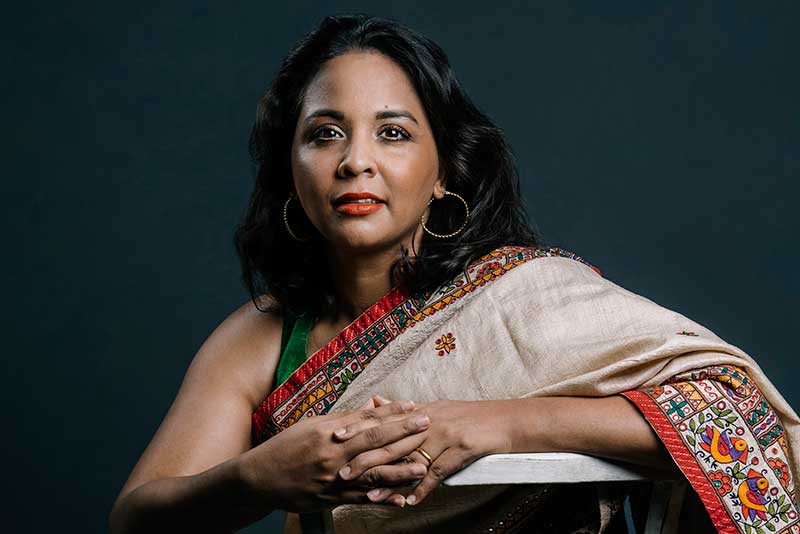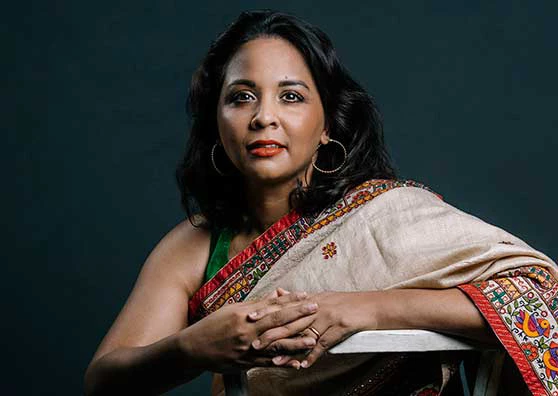
“IT’S WITH RURAL, MIDDLE-INCOME PEOPLE THAT DIGITAL HEALTH SOLUTIONS CAN HAVE THE BIGGEST IMPACT.”
Interview with Ruwani Hettiarachchi, Chief Growth Officer, Hemas Holdings
Digitalization is a part of successful health services delivery, says Ruwani Hettiarachchi, Chief Growth Officer of Sri Lanka-based Hemas, a hospital provider and pharmaceuticals company. In this interview, she explains the difficulties in getting providers to adopt digital health tech, how to make a digital transformation benefit business and patients alike, and what working with IFC’s new DigiHealth program taught them about making the right digital decisions.
What are some barriers to getting more providers to adopt digital health technology and how can we change that?
What can make digitalization difficult is that you are asking healthcare providers to change the way they do things. There can be a certain stickiness among healthcare providers around new behaviors, such as using a smart pen to write a prescription, typing something out, or scanning something. The new generation of digital health and medical technology companies understand this, so they are saying ‘we’ll work with how you currently perform your functions. We are not asking you to change a device, but we will seek to digitize wherever possible.’ The second challenge is cost. Clinics, and especially retail pharmacies, run on very thin margins, so unless someone bears the cost of installing a new technology and can demonstrate that it saves cost over time rather than adding cost—training people for instance—you can hit a brick wall when trying to introduce solutions.
Where do you see digital services making for better health outcomes?
This easiest way to answer this is with a specific example. If you are newly diagnosed with early-stage cancer, the current modality for treatment is a little nightmarish. In addition to battling the disease, you must navigate a completely overburdened healthcare system. After your first diagnosis, you are sent to a specialist, recommended a course of treatment, then you may have to meet with multiple doctors and healthcare providers in different locations, and take more tests. The onus will be on yourself to find the right medicines. Very little information will be shared with you and written material might not exist in your language. All these processes might take weeks or months, with likely lapses and delays.
Now imagine a world where your physician registers you on an app or online resource that in one place maps out for you the likely pathway you need to follow to get better and shows you the doctors and resources available, the medications and their side effects. Imagine how much that can do to relieve the mental and physical burden of someone going through one of the most fearful times in their life.
What’s important to consider when designing digital health solutions?
It is important to consider the users’ level of digital skills but also to nativize the technology. For instance, with a search engine, people need to be able to form a question in their own language. One of the best days of my life was walking into a semi-public hospital in Dhaka in Bangladesh. There were digital kiosks all around for booking an appointment or navigating your way through the hospital and the number of people using them was remarkable. In South Asia, many of us grow up thinking that digital solutions are the realm of the urban wealthy but it’s with rural, middle-income people that they can have the biggest impact.
What’s your approach for making digital health part of your health services?
At Hemas, we try to be ahead of the curve by making an investment even before it is needed. Our hospitals went digital very fast. Patients book their appointments online through a platform where they can manage their health. The feature that patients used the most often was a tracker app that notified them by text when they have an appointment and when the doctor will be present. This tackles one of the biggest issues in Sri Lanka’s healthcare system, namely too many patients and too few physicians, leading to hours-long waits. With this app, the patient knows when the doctor is 15 minutes away, so they don’t have to waste their time.
You recently partnered with IFC through our DigiHealth program to assess your digital systems and recommend changes. What did you gain from this experience?
The partnership with IFC really opened our eyes to what success looks like when you employ digital solutions through our health system. Previously, we had been somewhat mechanically digitalizing certain processes without trying to fully understand the overall outcome or benefit. Keith De Alwis, our Chief Digital Officer worked closely with IFC, to help us focus on key strategic questions, for instance identifying the number of patients that will be affected by it, how many more patients you can serve, the impact digital can have on revenue generating or the costs that you save.
Founded as a pharmaceutical wholesaler in 1948, Hemas has since branched out to include hospitals. What were the key considerations involved in expanding?
We were very mindful that there would soon be an explosion in patient demand in Sri Lanka. We became the first among our private sector peers to build a fully-fledged hospital outside Colombo. A major consideration was to uphold our competitive price point, meaning we provide a quality in patient outcomes that people are accustomed to in urban centers but without the frills that more elite customers want.
If you had to prioritize one digital change in healthcare, what would that be?
One of the very first things we can do is put patient registries online and give them access to information about physicians and healthcare access points. This can save a lot of time and cost. It’s also important to use digital tech to help improve tracking of patients and diseases. Having such data available digitally enables you to make much better decisions down the line.
This interview has been edited for length and clarity.
Published in April 2022
Ruwani leads Growth and Mergers & Acquisition for Hemas Holdings in Sri Lanka. Prior to her role in Hemas, Ruwani was the CEO and Founder of Vox & Co., a boutique strategy consultancy firm where she helped local and foreign investors navigate the Sri Lanka for greenfield investments and acquisitions in healthcare, education, agriculture, and industrials. Ruwani has an MA in Economics from the University of Edinburgh. Ruwani is the Co-Producer and Lead Screenwriter for Patta History, a YouTube channel dedicated to bringing animated stories of Sri Lanka’s history to a wider audience.
- To stay up to speed with trends in emerging market healthcare, follow the IFC Health LinkedIn
-
